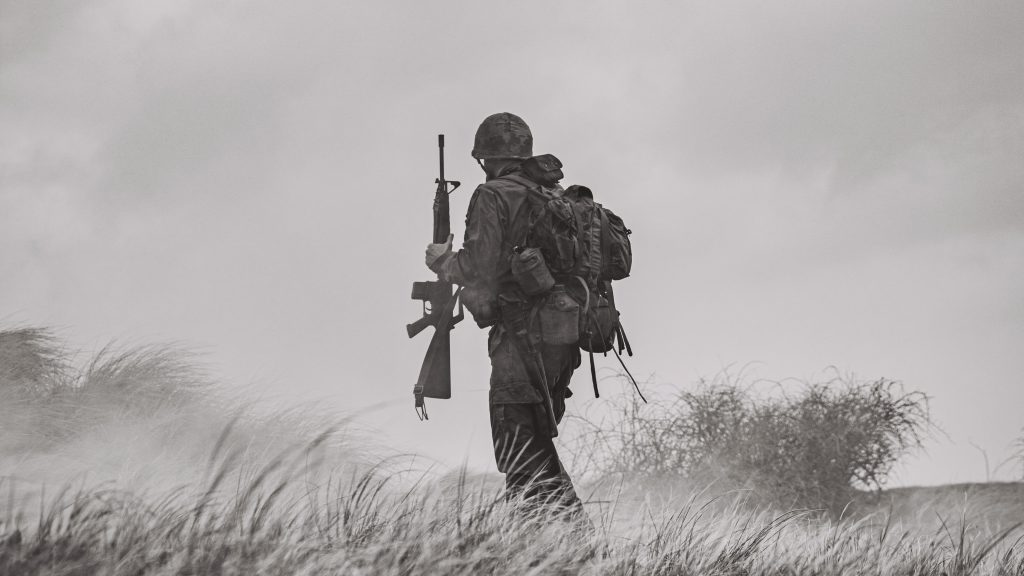I’m one of many in my generation who has been taught more about our individual walk with Jesus than about how all of us believers are one body. Only recently has the reality of this truth about the church become more clear to me. I don’t want to mislead you—I’ve certainly understood this truth in part in the past, but not to the extent I do now.
As the Holy Spirit has awakened my awareness to this reality, I’ve often thought of the Naval Sea, Air, and Land teams, commonly known as the Navy SEALs.
I have a friend who is a member of these elite warriors. He has been with SEAL teams for fifteen years and is currently an instructor. After pondering these truths about the body of Christ for some time, I decided to contact him. I knew SEALs were a close band of brothers, so I wanted to probe deeper. I called him and my first questions were, “How do SEALs view and interact with each other? How do they produce such a tight-knit community? And what is entailed in their training?”
His first comment to me, “The last person a SEAL thinks of is himself.”
I loved how clear and concise he was right out of the gate. I knew it would be a revealing phone call and remained silent so he could continue.
“We value our brother next to us more than our self. We never have to cover our backs, because we know our SEAL brothers will.”
At that point he started “preaching” to me: “If you look at the sixth chapter of Ephesians, you’ll find the armor of God is all forward facing— nothing covers our rear side. The reason is that God intends for each of us to do what the SEALs do, to cover each other’s backs—to think as one unit, one body. If we don’t operate this way, I have only one person covering my back: me. However, if we all function as a team, I have every guy in my platoon covering my back.”
He continued, “As a Navy SEAL, everything I do is for the sake of my brother next to me. We believe this to the very core of our being. We are trained not to think of ourselves as individuals, but as a unit. Even though we are trained as experts in different areas—explosives, communications, sniper, medic, JTAC, weapons, breaching, and so on, we function as one unit. We never go on a mission with the mentality of, Some of us may not come back, or only forty percent of us will make it back. No, our attitude is, One hundred percent of us go in and one hundred percent of us come back.”
I was captivated by what he was revealing. Eventually, I asked, “How do you train this attitude into your recruits?”
“You can’t!” he replied. “The Basic Underwater Demolition/SEAL training is considered the most arduous, difficult training in the military and is why approximately ninety percent of those who sign up for the SEAL program either quit or get washed out. What remains is a unit of highly trained, fully equipped individuals. Each one values the man next to him more than himself and is willing to die for a cause bigger than himself.”
He then said, “John, if only the church would behave this way. What would happen?”
Sadly, I could only agree. However, the truth is that we do have the potential for this. It is a very real part of the divine nature placed in us when we are born again. The preaching and teaching we receive, which is our training, should locate this attitude and flesh it out. But if we only hear a consumer version of the gospel, we will develop the wrong thing— our unredeemed flesh. This is largely why the modern church is in the shape we are in. Many of us only want to be encouraged and uplifted, rather than challenged. We’re missing so much.
My friend is a warrior, yet he perceived the weakness of the church in modern times. He knew that if one member of a SEAL platoon was weak, compromised, or had abandoned his post, all the team members would suffer as a group or die because of that one person’s laziness or incompetence. What is ingrained in him is what we need embedded in our psyche as members of the body of Christ. Let’s remember the words of the apostle Paul:
“Do nothing from selfish ambition or conceit, but in humility count others more significant than yourselves. Let each of you look not only to his own interests, but also to the interests of others.” (Philippians 2:3–4)
We’re all in this together. Let’s watch each other’s backs.
P.S. If you got something out of this, I think you’ll love my book Killing Kryptonite.
